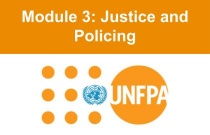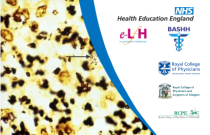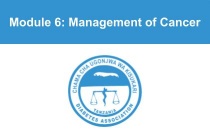SESSION 3: Water-and Food Related Illness
Martha Grant Fuller
This presentation discusses the impacts of climate change on water and food security. Participants will examine threats such as poor water management, drought, and contamination, as well as their effects on human health. Solutions for addressing these challenges and promoting regional water conservation are also explored.
SESSION 5: Mental Health
Mitzie R. Meyers and Josephine S.C. Williams
This presentation discusses the mental health impacts of climate change, particularly on vulnerable populations. It covers barriers to accessing mental health services, strategies for health promotion, and coping mechanisms for climate-related stress.
SESSION 10: Climate Change and Health Equity
Suellen Breakey
This presentation discusses the intersection of climate change and health equity, focusing on the disproportionate impacts of climate-related health threats on vulnerable populations and strategies for advancing climate and environmental justice.
Module 2: Health Services
Tania Farha and Riet Groenen, Luis Mora and Upala Devi, Claudia Garcia Moreno and Avni Amin
Module 2 covers standards and guidelines for the health sector.
Module 3: Justice and Policing
Tania Farha and Riet Groenen, Luis Mora and Upala Devi, Suki Beavers, Charles Chauvel and Niki Palmer, Claudia Baroni and Sven Pfeiffer, Ms Clarice Da Silva e Paula and Ms Kerry Neal
Module 3 covers standards and guidelines for the justice and police sector.
Module 5: Coordination and Governance of Coordination
Tania Farha and Riet Groenen, Luis Mora and Upala Devi, Sven Pfeiffer, Avni Amin and Claudia Garcia Moreno
Module 5 covers standards and guidelines for coordination and governance of coordination.
Module 6: Implementation Guide
Kalliope Mingeirou, Caroline Meenagh and Tania Farha, Luis Mora and Upala Devi, Claudia Baroni and Sven Pfeiffer, Claudia García- Moreno and Avni Amin, Diego Antoni, Kathryn Robertson
Module 6 is an implementation guide.
Updated WHO Hepatitis Guidelines: What Does it Mean for Africa?
Prof. Mark Sonderup, Dr Janvier Serumondo
On 8 August, ASLM’s LabCoP hosted an Extended ECHO session about improving hepatitis testing through adoption of the new World Health Organization guidance, and how to take advantage of the available diagnostic tools. Globally, hepatitis remains a pressing health concern, with an estimated 250 million people living with chronic....
Mpox Response: Epidemiology, Trends, and Diagnostics
Mr. Nqobile Ndlovu, Dr. Yenew Kebede Tebeje
On 29 August 2024, ASLM’s LabCoP hosted the first session in a series of special ECHO sessions that focuses on mpox, epidemiology, recent trends, and the current diagnostic landscape. The upsurge of mpox in a growing number of countries in Africa has been recognized and declared to constitute a public health emergency of contine....
Pediatric HIV Care: Equitable Access with Xpert HIV-1 Qual XC
Dr Gwynn Stevens and Mr Jibrin Kama
The March LabCoP ECHO Session focused on transforming pediatric HIV care through ensuring equitable access with the introduction of Xpert HIV-1 Qual XC. Early initiation of antiretroviral therapy (ART) in HIV infected infants improves overall care outcomes, yet coverage of critical interventions including access to timely diagno....
WHO 3-test Algorithm in Malawi: Self-assessment Quality Monitoring with dHTS CMM
Dr Violet Oramisi, and Dr Rose Nyirenda
The June 2024 LabCoP ECHO Session covered Malawi’s experience adopting the World Health Organization’s recommended 3-test algorithm. The WHO recommends using a standard HIV testing strategy, with three consecutive reactive tests to provide an HIV positive diagnosis. Adoption of this guidance is based on country-level selection a....
Morphine and Other Opioids
Jeremy Nightingale and Jo Burrows
This session considers the pharmacology of morphine and other opioids. It covers analgesic efficacy and side effects, pharmacokinetics (which takes in bioavailability, lipid solubility and half-life) and inter-individual variability in pharmacodynamics and pharmacokinetics.
The Cytochrome P450 System
Franscesa Bold
This session introduces the cytochrome P450 enzyme system and its role in physiology and pharmacology, with a focus on the effects of drugs used commonly in anaesthesia.
Health Promotion in Clinical Consultations
Russell Viner
This session will assist you in understanding the practical concepts relating to the promotion of health in adolescents in various settings.
Psychological Development
Russell Viner
This session will review the reciprocal impact of changes in psychological development in adolescence including cognitive, emotional and behavioural development. The session will also consider what impact these developmental changes have on self-management of long-term illness during adolescence.
Nucleic Acid Amplification Tests
Deborah Mortiboy, Mark Hopkins and Dr Anu Chawla
This session describes the common molecular methods used to diagnose sexually transmitted infections (STIs) in the UK, focusing on Chlamydia trachomatis (C. trachomatis) and Neisseria gonorrhoea (N. gonorrhoeae) as examples, to enable an understanding of the basic concepts and the caveats of different methodologies in clinical p....
Diagnosing Donovanosis
Nigel O'Farrell
This session covers the various methods of diagnosing donovanosis in the laboratory. It describes the samples that are required, the nature of the tests and their potential advantages and disadvantages.
Diagnosing Viral Hepatitis
Gary Brook
This session explains how hepatitis A-E should be diagnosed. It describes sampling and diagnostic tests. The timescale between exposure and tests for hepatitis becoming positive is discussed, as is the interpretation of test results after treatment.
Introduction to Visual Electrophysiology
Richard G Smith
This session provides an overview of the human visual system and commonly-used electrophysiological techniques for testing its function in a clinical setting.
Module 6: Management of Cancer
Dr. Jerry Ndumbalo, Dr. Julius Mwaiselage, Dr. Carol Swai, Dr. Alita Mrema
Module 6 delves into cancer management, covering its epidemiology, types, risk factors, and prevention strategies. Participants gain insights into the management of specific cancer types, including cervical, endometrial, breast, oesophageal, prostate, and retinoblastoma. Palliative care is discussed, encompassing its essential c....
Module 10: Management of Trauma and Injuries
Dr. William Mgisha, and Dr.Shadrack Schock
Module 10 covers trauma and injuries, including dislocations, fractures in children and adults, poly-trauma, and head injuries. Participants learn to manage acute dislocations, fractures, and trauma-related complications, integrating quality improvement principles for enhanced patient care.
Patient Assessment for Conscious Sedation
Chris Doleman
This session aims to provide an overview of the requirements necessary when selecting patients to undergo conscious sedation within the primary care setting. It discusses the importance of the ASA classification, patient selection, medical and dental history and the consent processes involved.
Principles of Inhalation Sedation
Kathy Wilson
This session describes the principles of inhalation sedation for the anxious dental patient, including indications for use, advantages and disadvantages, patient assessment and administration for dental treatment. It also highlights the management of sedation-related complications.
Societal and Professional Perspectives of Health and Disease
Paul Batchelor
This session outlines the different perspectives of health that exist and how these have evolved over time. It is important to understand how the patient views their oral health and the role that you might play in maintaining it.
Clinical Priorities
StJohn Crean
This session describes how to develop a prioritisation approach for treatment planning. It outlines how to grade presenting conditions, identify priorities and how to approach the timing of interventions.
























